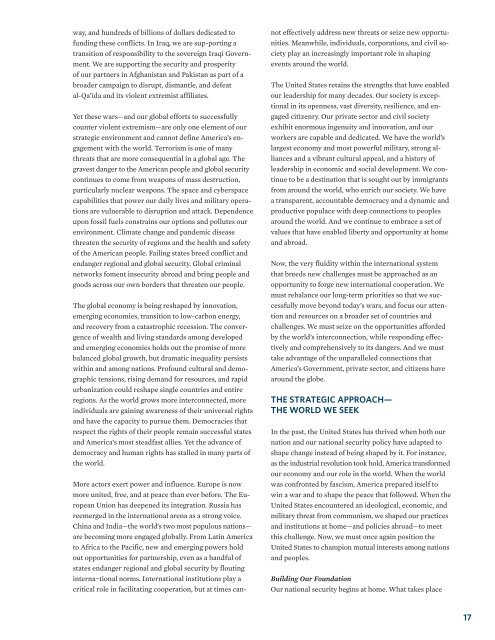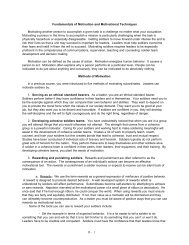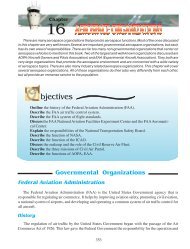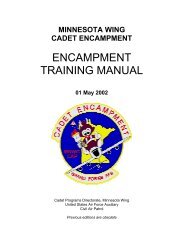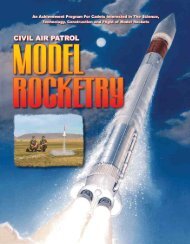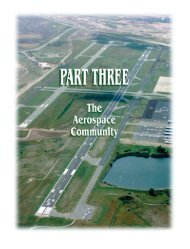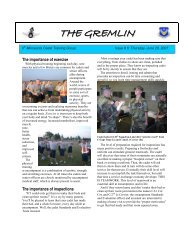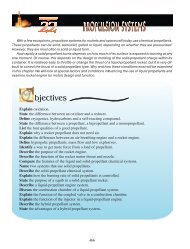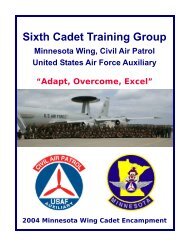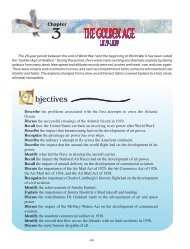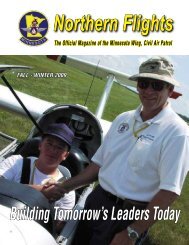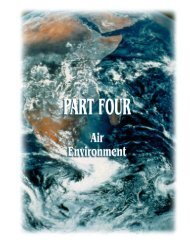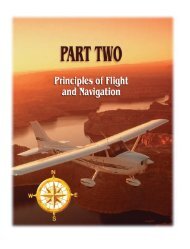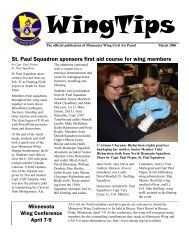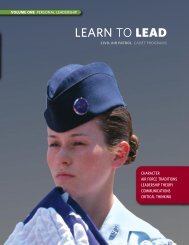12.2 National Security StrategyThe Administration of President Barack ObamaOBJECTIVES:6. List the enduring American interests as outlined in the National Security Strategy.7. Summarize the goals listed in the National Security Strategy related to Diplomacy.8. Summarize the goals listed in the National Security Strategy related to Strategic Communications.“More than at any point in human history—the interests of nations and peoples areshared. The religious convictions that wehold in our hearts can forge new bonds amongpeople, or tear us apart. The technology weharness can light the path to peace, or foreverdarken it. The energy we use can sustain ourplanet, or destroy it. What happens to thehope of a single child—anywhere—can enrichour world, or impoverish it.”—President Barack Obama,United Nations General Assembly, September 22, 2009The United States must renew its leadership in the worldby building and cultivating the sources of our strengthand influence. Our national security depends upon America’sability to leverage our unique national attributes, justas global security depends upon strong and responsibleAmerican leadership. That includes our military might,economic competitiveness, moral leadership, global engagement,and efforts to shape an international systemthat serves the mutual interests of nations and peoples.For the world has changed at an extraordinary pace, andthe United States must adapt to advance our interests andsustain our leadership.American interests are enduring. They are:• The security of the United States, its citizens, and U.S.allies and partners;• A strong, innovative, and growing U.S. economy in anopen international economic system that promotes opportunityand prosperity;• Respect for universal values at home and around theworld; and• An international order advanced by U.S. leadershipthat promotes peace, security, and opportunity throughstronger cooperation to meet global challenges.Currently, the United States is focused on implementing aresponsible transition as we end the war in Iraq, succeedingin Afghanistan, and defeating al-Qa’ida and its terroristaffiliates, while moving our economy from catastrophicrecession to lasting recovery. As we confront these crises,our national strategy must take a longer view. We mustbuild a stronger foundation for American leadership andwork to better shape the outcomes that are most fundamentalto our people in the 21st century.THE STRATEGIC ENVIRONMENT—THE WORLD AS IT ISIn the two decades since the end of the Cold War, the freeflow of information, people, goods and services has acceleratedat an unprecedented rate. This interconnection hasempowered individuals for good and ill, and challengedstate based international institutions that were largelydesigned in the wake of World War II by policymakerswho had different challenges in mind. Nonstate actorscan have a dramatic influence on the world around them.Economic growth has alleviated poverty and led to newcenters of influence. More nations are asserting themselvesregionally and globally. The lives of our citizens—their safety and prosperity—are more bound than ever toevents beyond our borders.Within this environment, the attacks of September 11,2001, were a transformative event for the United States,demonstrating just how much trends far beyond our shorescould directly endanger the personal safety of the Americanpeople. The attacks put into sharp focus America’sposition as the sole global superpower, the dangers ofviolent extremism, and the simmering conflicts that followedthe peaceful conclusion of the Cold War. And theydrew a swift and forceful response from the United Statesand our allies and partners in Afghanistan. This responsewas followed by our decision to go to war in Iraq, and theensuing years have seen America’s forces, resources, andnational security strategy focused on these conflicts.The United States is now fighting two wars with manythousands of our men and women deployed in harm’s16
way, and hundreds of billions of dollars dedicated tofunding these conflicts. In Iraq, we are sup-porting atransition of responsibility to the sovereign Iraqi Government.We are supporting the security and prosperityof our partners in Afghanistan and Pakistan as part of abroader campaign to disrupt, dismantle, and defeatal-Qa’ida and its violent extremist affiliates.Yet these wars—and our global efforts to successfullycounter violent extremism—are only one element of ourstrategic environment and cannot define America’s engagementwith the world. Terrorism is one of manythreats that are more consequential in a global age. Thegravest danger to the American people and global securitycontinues to come from weapons of mass destruction,particularly nuclear weapons. The space and cyberspacecapabilities that power our daily lives and military operationsare vulnerable to disruption and attack. Dependenceupon fossil fuels constrains our options and pollutes ourenvironment. Climate change and pandemic diseasethreaten the security of regions and the health and safetyof the American people. Failing states breed conflict andendanger regional and global security. Global criminalnetworks foment insecurity abroad and bring people andgoods across our own borders that threaten our people.The global economy is being reshaped by innovation,emerging economies, transition to low-carbon energy,and recovery from a catastrophic recession. The convergenceof wealth and living standards among developedand emerging economies holds out the promise of morebalanced global growth, but dramatic inequality persistswithin and among nations. Profound cultural and demographictensions, rising demand for resources, and rapidurbanization could reshape single countries and entireregions. As the world grows more interconnected, moreindividuals are gaining awareness of their universal rightsand have the capacity to pursue them. Democracies thatrespect the rights of their people remain successful statesand America’s most steadfast allies. Yet the advance ofdemocracy and human rights has stalled in many parts ofthe world.More actors exert power and influence. Europe is nowmore united, free, and at peace than ever before. The EuropeanUnion has deepened its integration. Russia hasreemerged in the international arena as a strong voice.China and India—the world’s two most populous nations—are becoming more engaged globally. From Latin Americato Africa to the Pacific, new and emerging powers holdout opportunities for partnership, even as a handful ofstates endanger regional and global security by floutinginterna¬tional norms. International institutions play acritical role in facilitating cooperation, but at times cannoteffectively address new threats or seize new opportunities.Meanwhile, individuals, corporations, and civil societyplay an increasingly important role in shapingevents around the world.The United States retains the strengths that have enabledour leadership for many decades. Our society is exceptionalin its openness, vast diversity, resilience, and engagedcitizenry. Our private sector and civil societyexhibit enormous ingenuity and innovation, and ourworkers are capable and dedicated. We have the world’slargest economy and most powerful military, strong alliancesand a vibrant cultural appeal, and a history ofleadership in economic and social development. We continueto be a destination that is sought out by immigrantsfrom around the world, who enrich our society. We havea transparent, accountable democracy and a dynamic andproductive populace with deep connections to peoplesaround the world. And we continue to embrace a set ofvalues that have enabled liberty and opportunity at homeand abroad.Now, the very fluidity within the international systemthat breeds new challenges must be approached as anopportunity to forge new international cooperation. Wemust rebalance our long-term priorities so that we successfullymove beyond today’s wars, and focus our attentionand resources on a broader set of countries andchallenges. We must seize on the opportunities affordedby the world’s interconnection, while responding effectivelyand comprehensively to its dangers. And we musttake advantage of the unparalleled connections thatAmerica’s Government, private sector, and citizens havearound the globe.THE STRATEGIC APPROACH—THE WORLD WE SEEKIn the past, the United States has thrived when both ournation and our national security policy have adapted toshape change instead of being shaped by it. For instance,as the industrial revolution took hold, America transformedour economy and our role in the world. When the worldwas confronted by fascism, America prepared itself towin a war and to shape the peace that followed. When theUnited States encountered an ideological, economic, andmilitary threat from communism, we shaped our practicesand institutions at home—and policies abroad—to meetthis challenge. Now, we must once again position theUnited States to champion mutual interests among nationsand peoples.Building Our FoundationOur national security begins at home. What takes place17
- Page 1 and 2: VOLUME FOUR STRATEGIC PERSPECTIVESL
- Page 3 and 4: VOLUME FOUR STRATEGIC PERSPECTIVESL
- Page 5 and 6: VOLUME FOUR STRATEGIC PERSPECTIVESL
- Page 7: VOLUME FOUR STRATEGIC PERSPECTIVESL
- Page 10 and 11: 12CHAPTER 12INTRODUCTION TO STRATEG
- Page 12 and 13: 12.1 Strategic Leadership: Defining
- Page 14 and 15: mandates or resolutions that would
- Page 16 and 17: and ambiguity, aspiring strategic l
- Page 20 and 21: within our borders has always been
- Page 22 and 23: front common challenges like violen
- Page 24 and 25: and our strategy, not sector earmar
- Page 26 and 27: thinking about organizations. She m
- Page 28 and 29: A systemic approach to failure is m
- Page 30 and 31: The late W. T. Grant Company is a r
- Page 32 and 33: the resources - setting the directi
- Page 34 and 35: focal point for describing and inte
- Page 36 and 37: Consequently, we do not restrict th
- Page 38 and 39: paragraphs, Web pages, then edit an
- Page 40 and 41: Web, can be viewed as a CS attempt
- Page 42 and 43: How to evaluate users and contribut
- Page 44 and 45: 13CHAPTER 13LEADING PUBLIC &VOLUNTE
- Page 46 and 47: 13.1 Leadership for Volunteers:The
- Page 48 and 49: 13.2 Take Root: Volunteer Managemen
- Page 50 and 51: QualificationsClearly list educatio
- Page 52 and 53: and effectively track their volunte
- Page 54 and 55: • Understand rules for recognitio
- Page 56 and 57: • Send a birthday card.• Submit
- Page 58 and 59: and tested more than six decades af
- Page 60 and 61: specific interests of the donors, v
- Page 62 and 63: tain) tax-exempt status from the In
- Page 64 and 65: Smucker, 1999).The Internal Revenue
- Page 66 and 67: culture is necessary to ensure the
- Page 68 and 69:
13.4 The New Look of TransparencyBy
- Page 70 and 71:
ees for a couple of reasons: One, i
- Page 72 and 73:
13.5 Public and Private Management:
- Page 74 and 75:
TABLE 1:FUNCTIONS OF GENERAL MANAGE
- Page 76 and 77:
3. Career System. The model corpora
- Page 78 and 79:
islative charter - the Clean Air Ac
- Page 80 and 81:
In controlling performance, Chapin
- Page 82 and 83:
14CHAPTER 14AIRPOWER ASSTRATEGIC LA
- Page 84 and 85:
14.1 Strategic Air Power: Fulfillme
- Page 86 and 87:
carry it out. Their daylight raids
- Page 88 and 89:
you did not rely on strategic bombi
- Page 90 and 91:
14.2 Warden and the Air Corps Tacti
- Page 92 and 93:
ecomes one of applying sufficient i
- Page 94 and 95:
tification, and a Jominian claim to
- Page 96 and 97:
courage the rapid and widespread ex
- Page 98 and 99:
it to influence physical players in
- Page 100 and 101:
14.4 Basic Air Force DoctrineAF Doc
- Page 102 and 103:
earthquake-stricken Haiti. The worl
- Page 104 and 105:
perspective. Airmen do not divide u
- Page 106 and 107:
Command and ControlCommand and cont
- Page 108 and 109:
14.5 Should the US Maintain the Nuc
- Page 110 and 111:
form of human government.” 20 Dem
- Page 112 and 113:
obtainable goal. See the Global Zer
- Page 114 and 115:
15CHAPTER 15ORGANIZATIONAL CULTURE
- Page 116 and 117:
15.1 Organizational CultureBy Doria
- Page 118 and 119:
Review. This action strives to unco
- Page 120 and 121:
gram will serve and then having the
- Page 122 and 123:
ticipating the changes being made b
- Page 124 and 125:
Many years of working with change p
- Page 126 and 127:
At the least, the areas of concern
- Page 128 and 129:
15.4 Developing an Innovative Cultu
- Page 130 and 131:
CONCLUDING THOUGHTSIn an ever-chang
- Page 132 and 133:
global issues. Businesses that poss
- Page 134 and 135:
— Sees the big picture—the shif
- Page 136 and 137:
16CHAPTER 16STRATEGIC COMMUNICATION
- Page 138 and 139:
16.1 Principles of Strategic Commun
- Page 140 and 141:
16.2 The Art of NegotiationBy Brend
- Page 142 and 143:
16.3 Negotiating Effectively Across
- Page 144 and 145:
hidden areas can act as cultural ho
- Page 146 and 147:
and four conflict styles. Hammer be
- Page 148 and 149:
maintaining the relationship. As th
- Page 150 and 151:
25 Mitchell R. Hammer, “Chapter 1
- Page 152 and 153:
tural, socioeconomic, and psycholog
- Page 154 and 155:
for the win-win," during which time
- Page 156 and 157:
interests and, at worst, as a gun s
- Page 158 and 159:
Public diplomacy is surely about mu
- Page 160 and 161:
But public diplomats do not have th
- Page 162 and 163:
Photo courtesy of the familyThe LEA
- Page 164:
THE CADET OATHI pledge that I will


